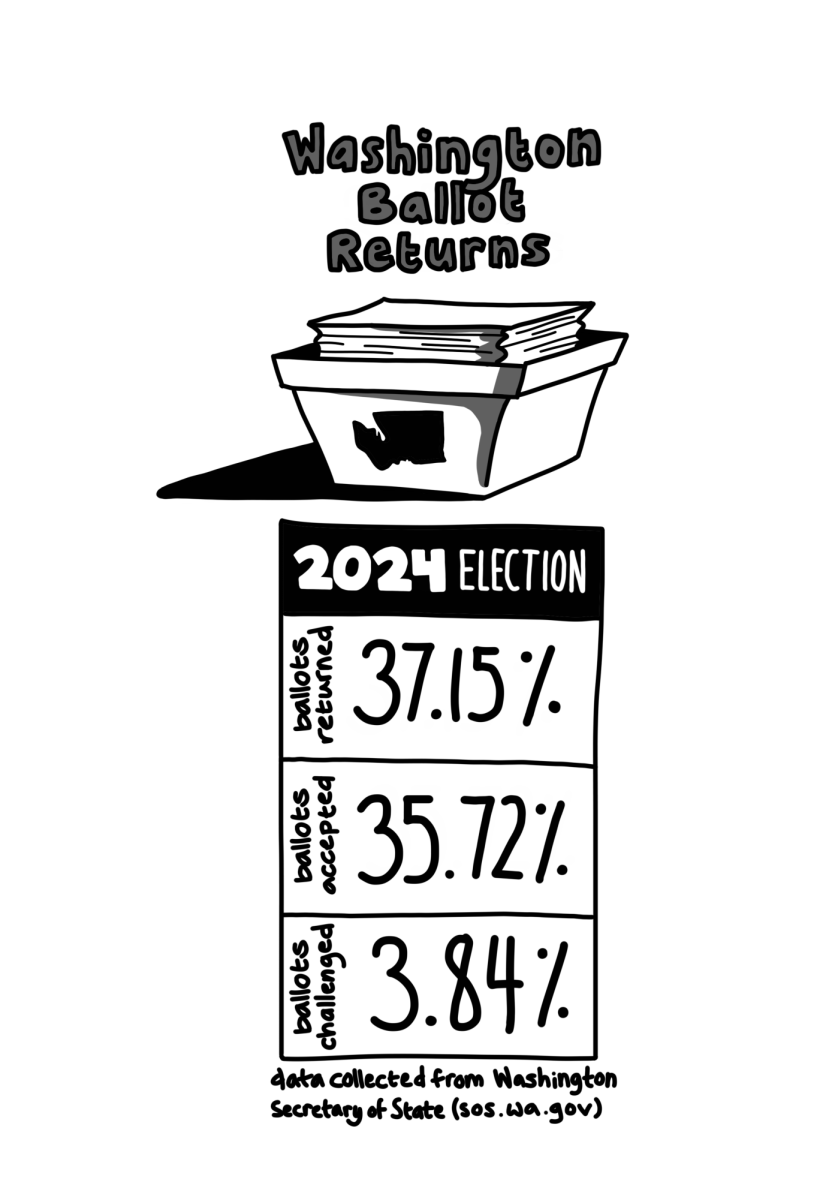by Christina Russell
WHITMAN COLLEGE PIONEER
What many Americans remember as our country’s biggest mistake, national authority on U.S. foreign policy and Whitman Professor David Schmitz claims is unfolding before us once again. In a lecture titled “Iraq and the Unlearned Lessons from the Vietnam War” on Wednesday, Oct. 18, Schmitz presented his theory that many of the mistakes we are witnessing in the current administration’s handlings of U.S. invasion of Iraq are analogous to the arguably irreparable damage to civilians, soldiers and American patriotism that came as a result of the Vietnam War.
Schmitz is the author of a plethora of books and scholarly articles that include “The United States and Right––Wing Dictatorships, 1965-1989” and “Politics, War and Public Opinion.” He is currently on sabbatical from teaching at Whitman.
Schmitz explained that inherent in the Bush Administration is sense of denial over the outcome of Vietnam. There is a belief that failure in the Vietnam crisis arose because America neglected to stay the course. “There is a certainty that the war was necessary,” said Schmitz. “Doesn’t everyone want freedom? Democracy?” These are the questions the Bush Administration are asking about Iraq, questions that were central in the Johnson and Nixon Administrations during the Vietnam War. In both cases, there is a desire to build nations in America’s image. Schmitz argued that there are discrepancies between what the Bush Administration holds to be true and the reality of those same values. Schmitz used the example of establishing a democratic society and then defining its stability by proving that its citizens are voting. “The Soviet Union used to hold elections all the time. Elections don’t mean anything by themselves,” Schmitz said.
Schmitz agreed with Colin Powell’s opinion that an administration must have clear goals and a defined exit strategy in order to be involved in a military operation of Iraq’s caliber. According to the Powell Doctrine, which Schmitz holds to be true, no force, no matter how great, could have changed the outcome of Vietnam; it was not a winnable conflict given the circumstances. Primary, this is because the government that the United States was fighting against lacked legitimacy. Iraq, Schmitz asserted, is un-winnable for this same reason.
Schmitz offered statistics in his lecture to further draw a parallel between the two conflicts. In Vietnam, enemy troops controlled 85 percent of the conflict, with the United States finding themselves in control only 15 percent of the time. Similarly, in Iraq, insurgent troops have controlled 82 percent of combat. In both cases, a war of attrition has been fought, Schmitz explained. In Iraq, the United States army can stay as long as they want: they are being depleted little by little so that losing will equate to them tiring of the engagement and going home. “These are not winnable wars for the superpowers,” said Schmitz. “At some point the U.S. has to face the hard reality that only the Iraqis will control the war.” Schmitz was clear in specifying that he is not a pacifist. “I support the war in Afghanistan. I wish that the United States government was using their energy in that conflict.”
Perhaps not shockingly, another corollary between Vietnam and Iraq is the number of innocent civilians that have lost their lives while wars are fought on their home soil. In Vietnam, two million Vietnamese died; in Iraq, 650,000 have perished thus far. Said Schmitz, “We have a certain vision of omnipotence. We’ve got to start asking a different series of questions.”
Schmitz believes that the domestic ‘War On Terror’ campaign is what enables the administration to garner continued support for Iraq. “It has kept the war from completely spinning out of control,” said Schmitz. Schmitz’s critique of the Bush Doctrine, the force driving contemporary decision-making on Iraq, is that it “is in tatters.” In response to a question from an audience member inquiring what hope there is that the Bush Doctrine will fundamentally change, Schmitz’s said, “I think [the administration] ha[s] run up against their limits.”
Student response on Schmitz’s analysis was positive. “I thought the speech was very informative,” said sophomore Jesus Vasquez. First-year Jane Lutken found the lecture to be “very insightful, particularly the Bush Administration’s reasons for invading Iraq and how they were similar to reasons for invading Vietnam.” First-year Kelli Kuhlman said, “I like how he just stepped back and presented the facts.”








